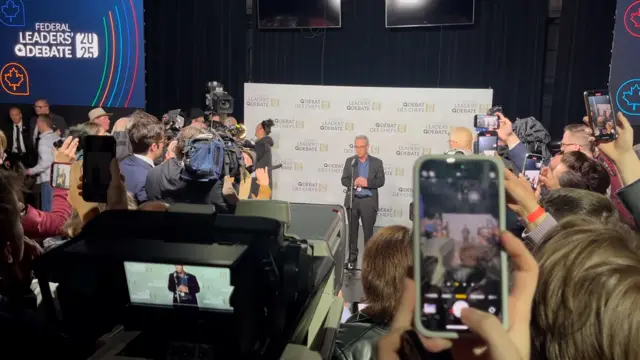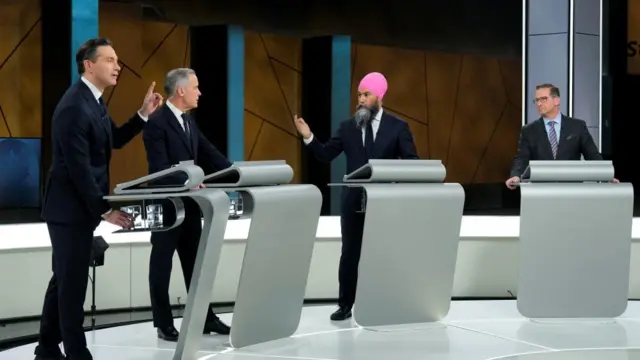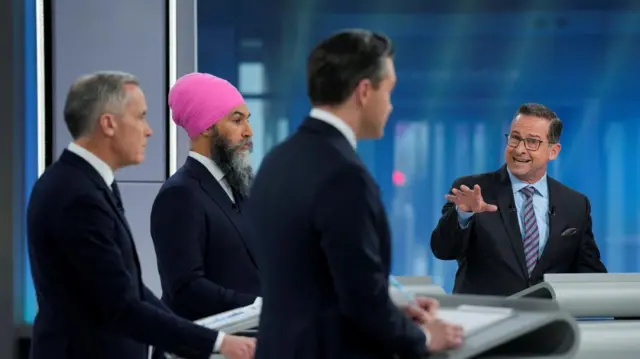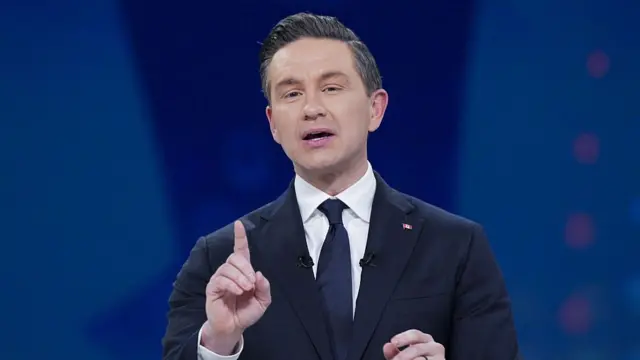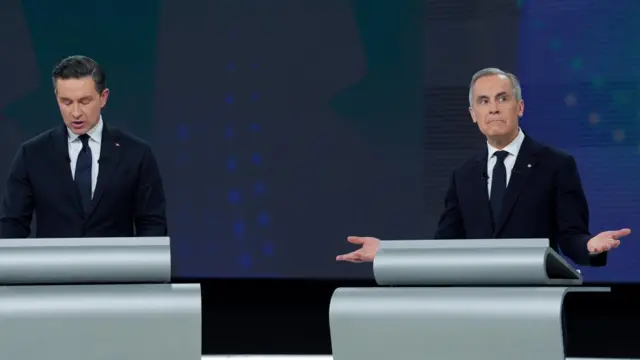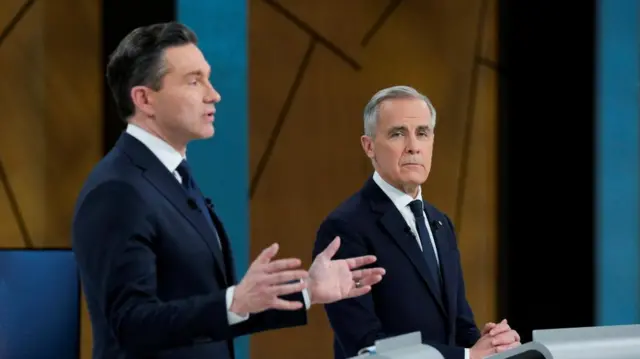It's the final countdown before Canada heads to the pollspublished at 03:48 British Summer Time 18 April
 Imogen James
Imogen James
Live reporter, Washington DC
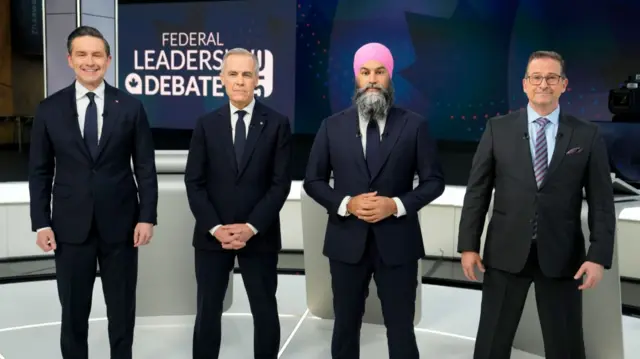 Image source, Adrian Wyld/POOL
Image source, Adrian Wyld/POOLFrom left to right: Pierre Poilievre, Mark Carney, Jagmeet Singh and Yves-François Blanchet
Tonight was the final shot for the leaders from four major Canadian political parties to argue their case for becoming Canada's next prime minister.
We heard arguments from Mark Carney, Liberal Party leader, Pierre Poilievre, Conservative Party leader, Jagmeet Singh, New Democratic Party leader and Yves-FrançoisBlanchet, Bloc Québécois leader.
It was fiery, quick - and very patriotic. They spoke on issues of security, tariffs, housing and the cost-of-living.
The United States - and President Donald Trump's threat to absorb Canada as the 51st state - also got a lot of attention.
Now, all eyes look ahead to the election in 11 days.
Though the leaders will get no more chances to take on their opponents face-to-face, they will continue heavy campaigning.
If you want a journalistic nightcap, we've summarised the key takeaways from the final leadership debate.
Thanks for joining us, and goodnight.
This page was edited by Jenna Moon and Caitlin Wilson. Lyse Doucet, Jessica Murphy and Nadine Yousif reported from Montreal and Toronto, and Imogen James, Ali Abbas Ahmadi and Kwasi Gyamfi Asiedu contributed blow-by-blow coverage from Washington DC and Toronto.



